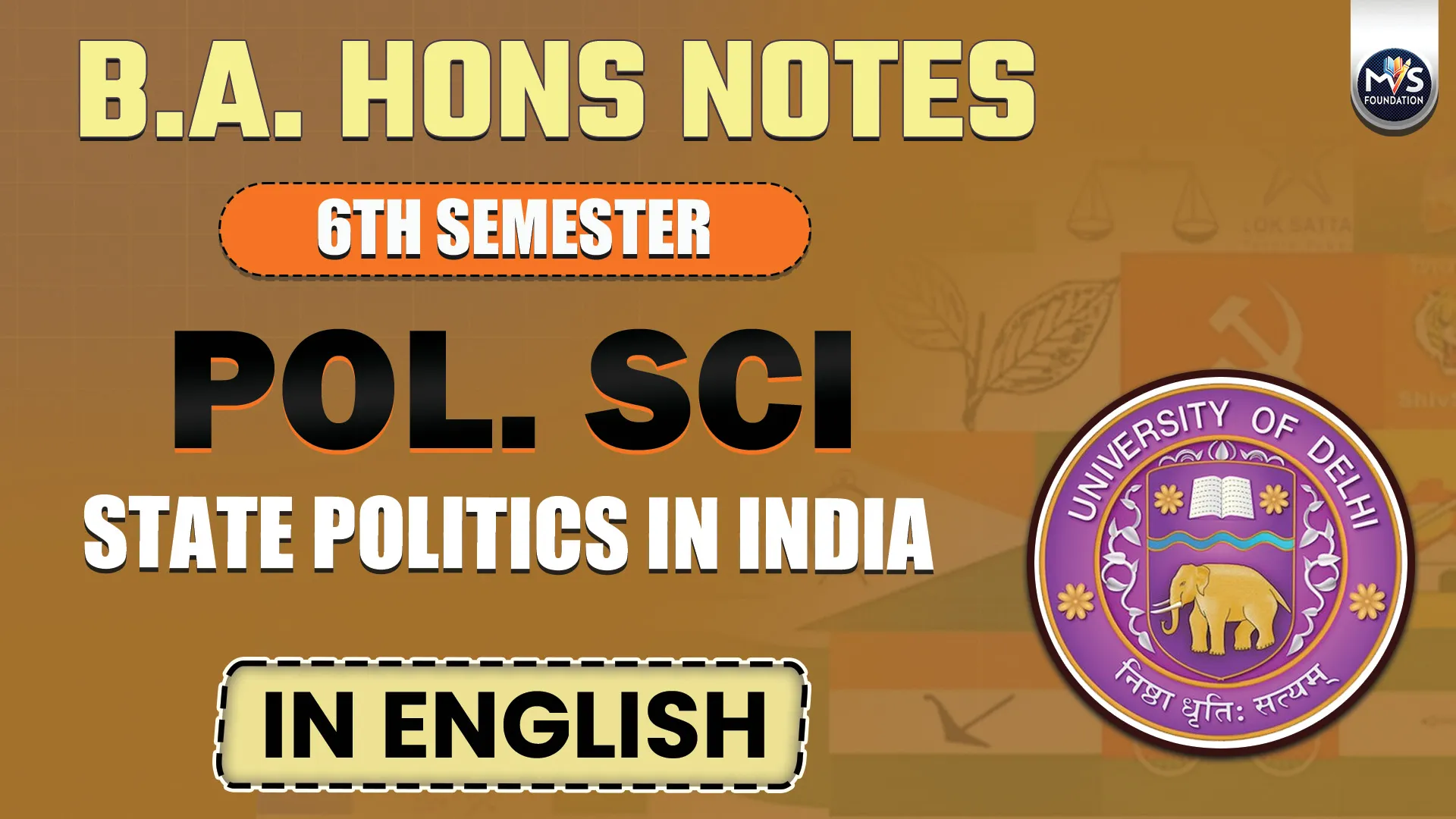Question 1 - Explain the three stages of study of electoral politics in states.
Answer -
Introduction
Researchers began to study electoral politics within India in the late first decade. During this time, researchers always kept their main focus on national level politics and studied various aspects in it. He made an in-depth study of state level elections, strategies of political parties, and public issues and attempted to understand it in the context of social and political change.
Election: It is a means through which a
prosperous nation involves its citizens in public affairs and provides them with an opportunity to participate in government. A smooth electoral system is the foundation of a truly representative government.
Click Here For Full Notes
Stages of Study of Electoral Politics in States:
Sudha Pai explains in her article that the journey of study of the state politics of India can be studied by dividing it into three phases-
1. First Stage of the Study of State Politics
- The first phase of Sudha Pals study of state politics is marked by the mid-1950s-1960s. This period was a period of nostalgia from the point of view of the study of state politics. From the point of view of research system, the work on state politics in this period was being done through the formal-legal research system.
- The impact of the changes in this phase can also be seen in the current state politics, such as the reorganization of states, the process of emerging leadership under the states, the merger of regional parties in the Congress party, etc. The main work of this period was done by S. V. Kogekar and R. Park and these researchers worked for the first time to give a different place to state politics.
- The establishment of the States Reorganisation Commission and the demand for linguistic state-based state formation served to shift research to the study of state politics.
2. Second Stage of study of state politics:
- According to Sudha Pai, a systematic study on state politics started from 1967 onwards and the credit for this is given to Iqbal Narain.
- In the same period, the work 'State Politics in India' edited by Myron Weiner can also be considered a milestone in the field of state politics. The book covers mainly eight states; Uttar Pradesh, Madhya Pradesh, Maharashtra, Jammu and Kashmir, West Bengal, Rajasthan, Andhra Pradesh and Punjab were studied.
- In this series, in 1976, Iqbal Narain presented a detailed research work studying the politics of 22 states of India.
- According to Sudha Pai, the main feature of this second phase was that while it started attracting researchers towards state-centric studies, on the other hand state politics was being seen as a sub-system.
- One of the features of this phase was that, by the 1960s, work based on empirical research (knowledge gained from actual experience) had also started, in which mainly studies on voting behavior became the focus of research, but this was the initial phase of empirical research.
Click Here For Full Notes
3. Third Stage of Study of State Politics:
- Sudha Pai believes that this third phase of the study of state politics was special because after 1970, the states had got the status of a separate 'Unit of Political Study'.
- In this period, the party and party system were being studied at two levels, firstly
the role of the Congress party under the states and how the role of other regional parties was being discharged under the state politics.
- Sudha Pai believes that there was no particular method or system in this period for studying state politics, which she describes as the advent of post-pragmatism, which encouraged the use of different methods rather than study by any one method or system.
Evaluation
In the first phase of the study of State Politics due to the prominence of the Congress Party, importance was given to national politics and state politics was separated from the study.
Under the second phase, researchers like Myron Winner and Iqbal Narain started studying state politics.
The third stage is described by Sudha Pai as the advent of post-pragmatism, which promoted the use of different methods rather than adopting one method or system.
Conclusion
At present, many books can be studied to study state politics, but to understand the continuous changes in state politics, we need to keep on improving.
Click Here For Full Notes

